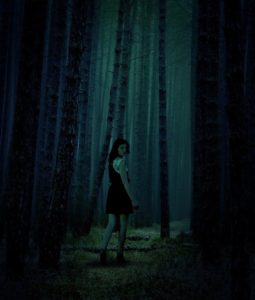After a rocket ride through science, I am hanging up the gloves, feeling a little ashamed and embarrassed to have devoted so much of my life to what I now see as a misguided cause that has done more harm than good in this world.
The previous post details my views about the limits of science. In this post, I will focus more on my own reaction as a human participant in the enterprise.
As is so often the case, my trajectory, in hindsight, looks straightforward and linear. Halley’s comet introduced me to the sky in 1985–1986 at age 15–16, quickly leading to my building a 10-inch Newtonian telescope on a German equatorial mount (using plumbing parts from my plumber neighbor). Through this telescope, I saw all nine planets in one night (when there were nine), an individual star (supernova) 36 million light years away, and a quasar 2 billion light years away. I was a physics major at Georgia Tech and spent every-other-quarter at the Naval Research Lab working on optical communications for space. I had my pick of graduate schools, and chose Caltech for its idyllic setting, its relaxed, collaborative atmosphere, and access to “big glass.” Within a few months of starting, I had gone on observing runs to the venerable Palomar 200-inch telescope and the Caltech Submillimeter Observatory on Mauna Kea. What a dream I was living! Meanwhile, I enjoyed many outdoor adventures with fellow grad students, some of whom have become life-long friends.
I did not expect to stay in academia (the statistics were not encouraging to a middling student), and interviewed at a few “industry” jobs while also dipping a toe into “prize” postdoc fellowships and create-your-own postdoc adventures. I picked one from the “adventure” bucket, to start a lunar laser ranging project as a test of general relativity at the University of Washington. Abandoning my graduate expertise in infrared astronomical instrumentation was risky, but I saw this postdoc as a last hurrah in academia, deciding that I might as well have fun. I loved the people I worked with, and savored my time in Seattle. Unintentionally, this gutsy move looked very attractive to faculty search committees, two of which tracked me down based on the reputation of my graduate work and then put me on their short lists after learning of my new direction. One of these led to a tenure-track job at UCSD starting in 2003, where I kept the pedal to the metal on the lunar ranging project. During a 20 year career there, I was never turned down for funding my project, hit all the usual promotion steps at the expected times (tenure then full professor), and felt that I had “made it” by all traditional measures. Having written and reviewed a large number of peer-reviewed papers and served as panel reviewer for NASA and the NSF for far more proposals than I ever wrote, I knew the “game” quite well. I had a versatile set of powerful tools that I could bring to bear on what seemed like almost any problem. Science was, in some ways, the essence of my being, and I found plenty of reward in it—both intrinsically and societally.
So, what happened?
Views: 16182




